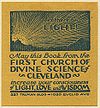Mental projection
| Planes of existence Gross and subtle bodies | |
|---|---|
| Theosophy | |
|
Full list 1. Spiritual plane / Monadic plane / Divine plane : 2. Spiritual plane:
3. Spiritual plane:
4. Spiritual / Causal plane / Buddhic plane :
5 Mental / Causal plane:
6. Astral-Ethereal plane:
7. Material plane:
| |
| Rosicrucian | |
|
The 7 Worlds & the 7 Cosmic Planes | |
| Thelema | |
| Body of light | Great Work | |
| Hermeticism | |
| Hermeticism | Cosmogony | |
| Surat Shabda Yoga | |
| Cosmology | |
| Jainism | |
| Jain cosmology | |
| Sufism | |
| Sufi cosmology | |
| Hinduism | |
| Talas/Lokas - Tattvas, Kosas, Upadhis | |
| Buddhism | |
| Buddhist cosmology | |
| Gnosticism | |
| Aeons, Archons | |
| Kabbalah | |
| Atziluth > Beri'ah > Yetzirah > Assiah Sephirot | |
| Fourth Way | |
|
Ray of Creation | |
Mental projection is a supposed or experienced form of consciousness/spirit/intelligence projection from the emotional/astral plane to the mental plane. Adepts say they are able to project first to the emotional/astral plane (or directly from it after death) and then onward to the mental plane by completely calming their emotional processes and withdrawing their emotional senses. Like astral projection, mental projection is performed during sleep, between lives, during meditation-contemplation, or through 'psychic' (soulful) separation of the mental body from the emotional/astral body via the silver cord. Planes beyond the mental are accessible through use of the 'gold cord'. According to many esoteric philosophers, when projecting in these higher planes one has no humanoid shape and is just a lotus- or egg-shaped 'auric body' of consciousness.[1]
Certain philosophers consider the mental plane optimal for projection as it is divine enough to avoid black magic and 'lower psychism' yet also grounded enough to preserve a rational quality of experience (rational but not emotionally detached; mental encloses emotional). Others think it is better to proceed beyond humanoid form to the causal and mental auras, as these reflections of yet higher formless consciousness also transcend deeper flaws of humanity (like 'egotistic self-identification') that cause the lower psychism. These philosophers recommend striving to project into divine consciousness, not necessarily leaving one's lower consciousness, but becoming aware of spirit and divine will.[2]
See also[]
- Astral plane
- Astral projection
- Bilocation
- Dream world (plot device)
- Esoteric cosmology
- Hallucination
- Illusion
- Mental plane
- Music of the Spheres
- Plane (cosmology)
- Simulated reality
- Simulated reality in fiction
- Thoughtform
References[]
- Philosophy stubs
- Spirituality stubs
- Theosophical philosophical concepts
- Spirituality
- New Age practices
- Lucid dreams
- Parapsychology
